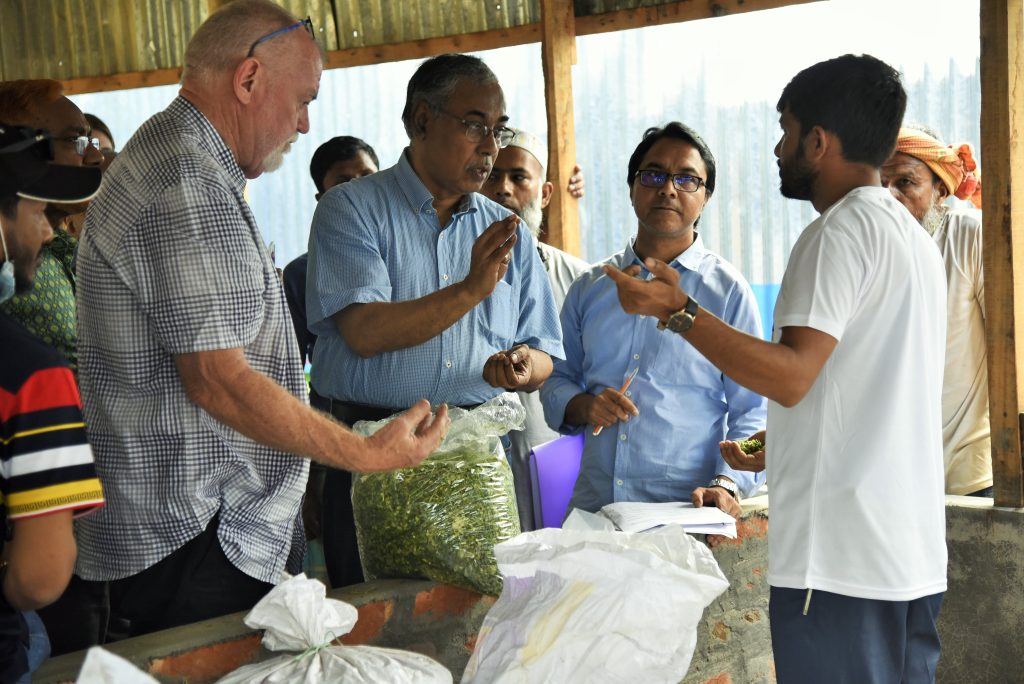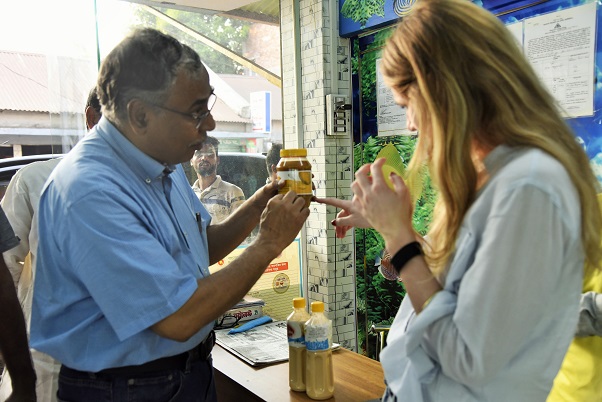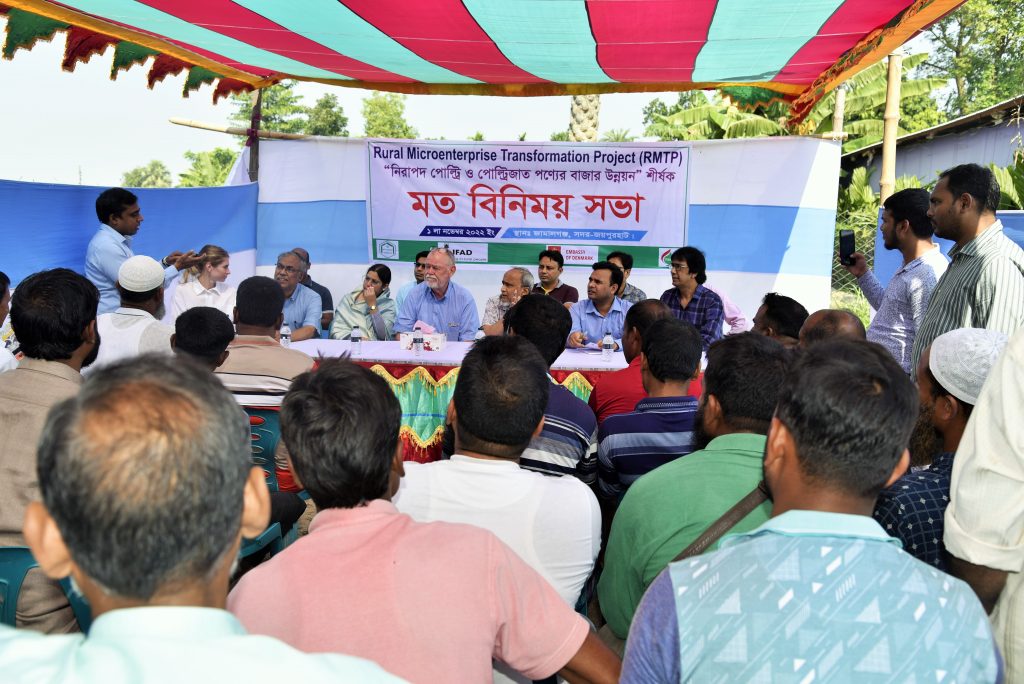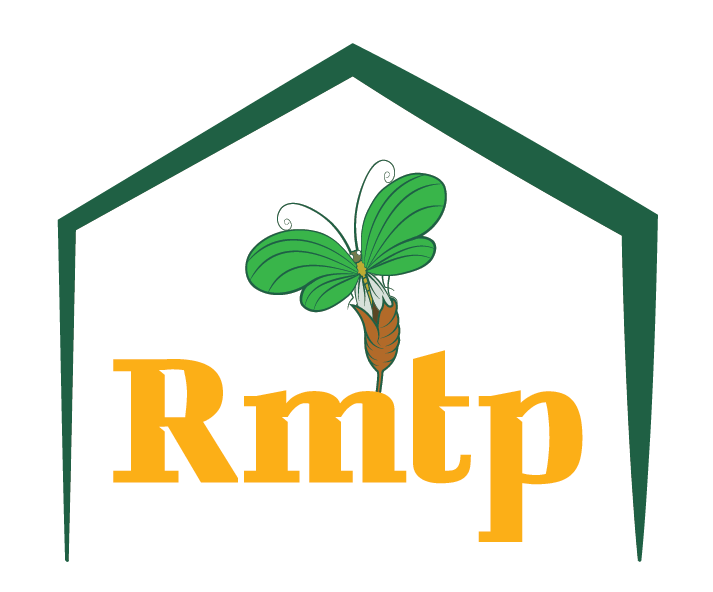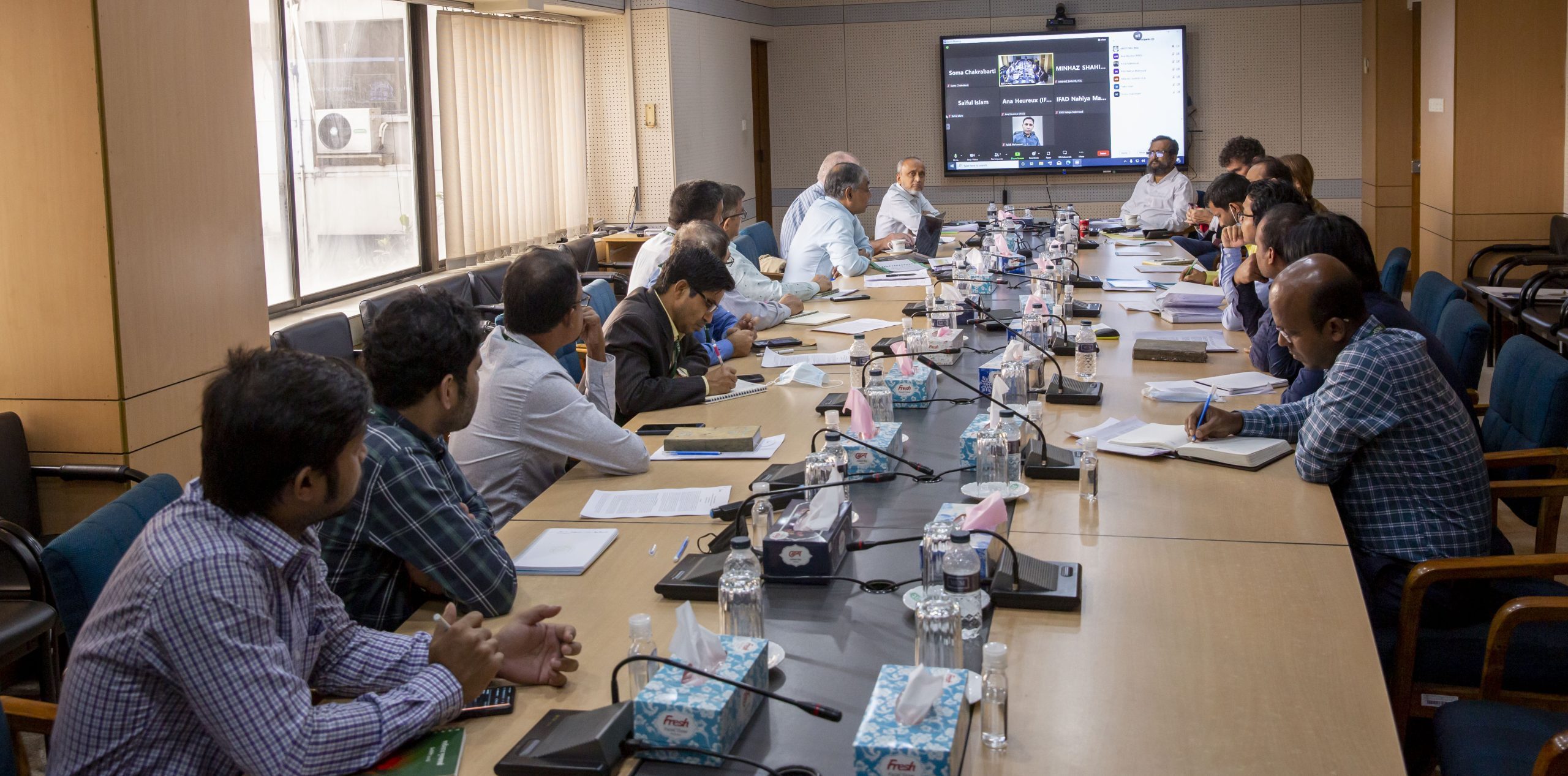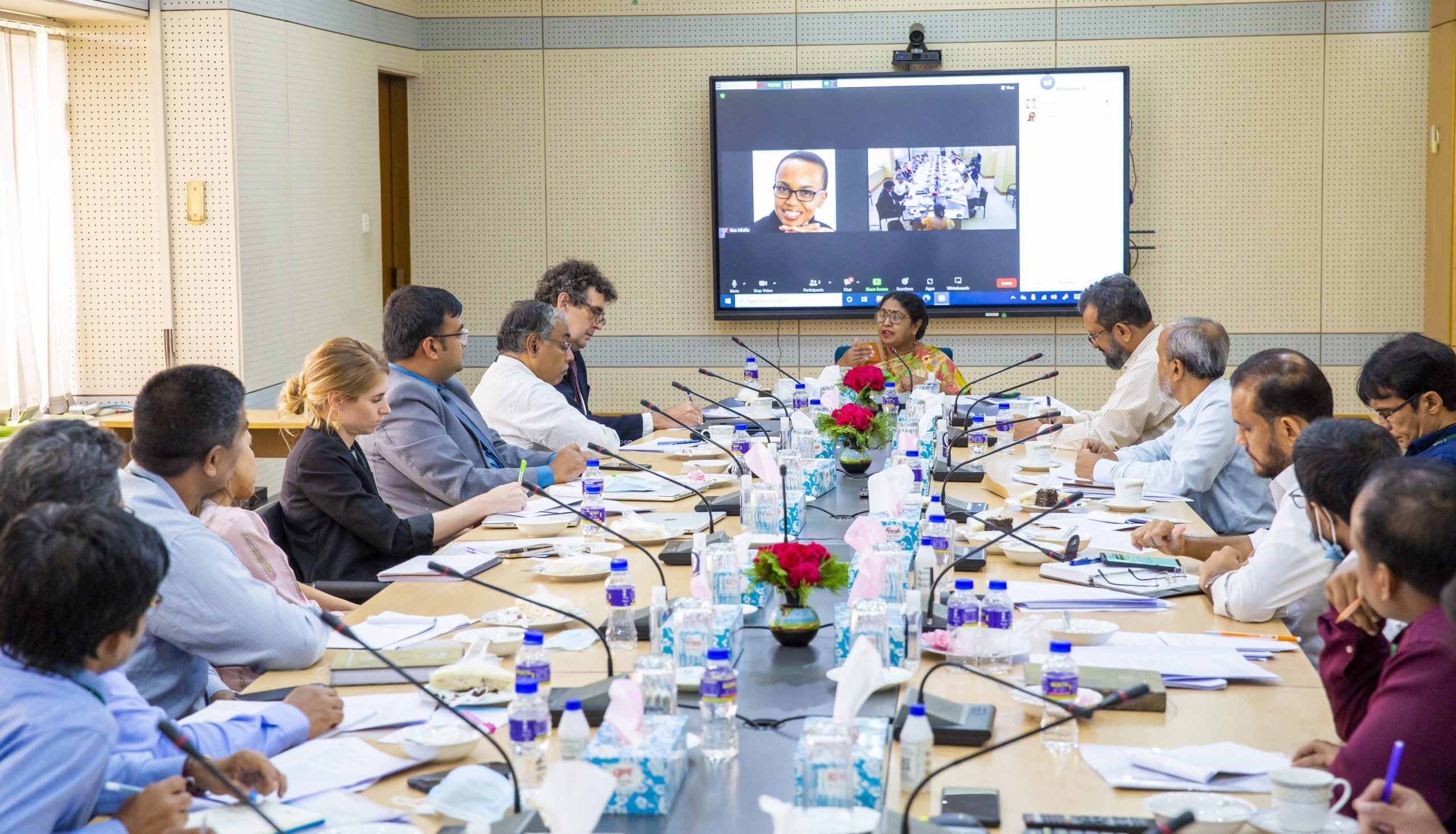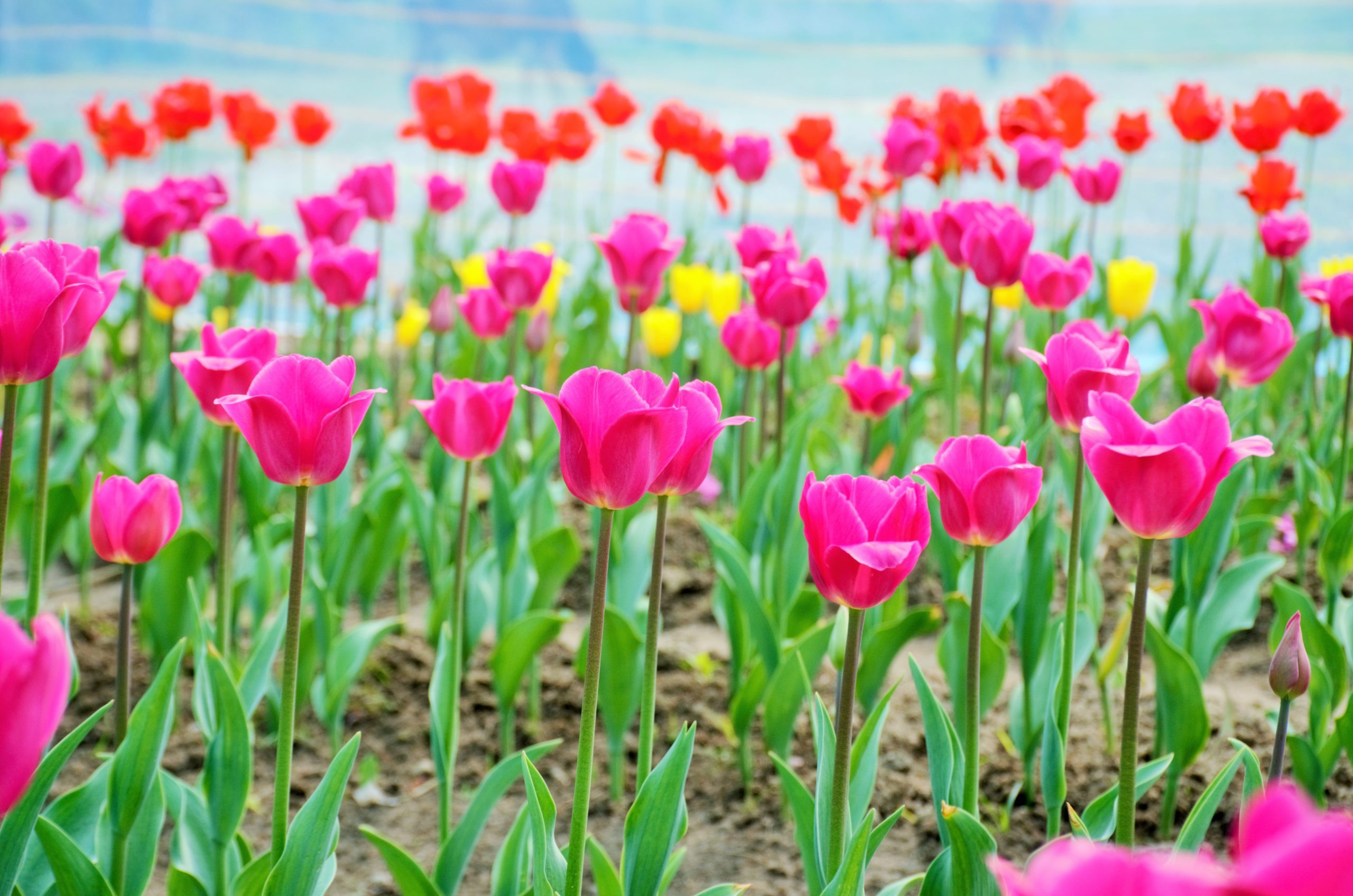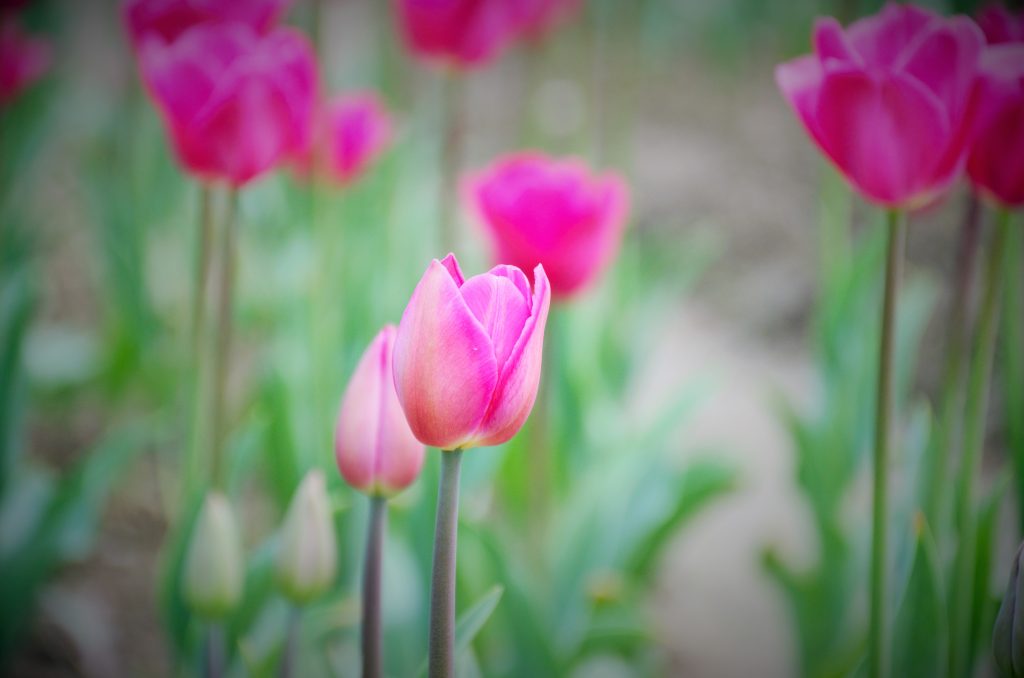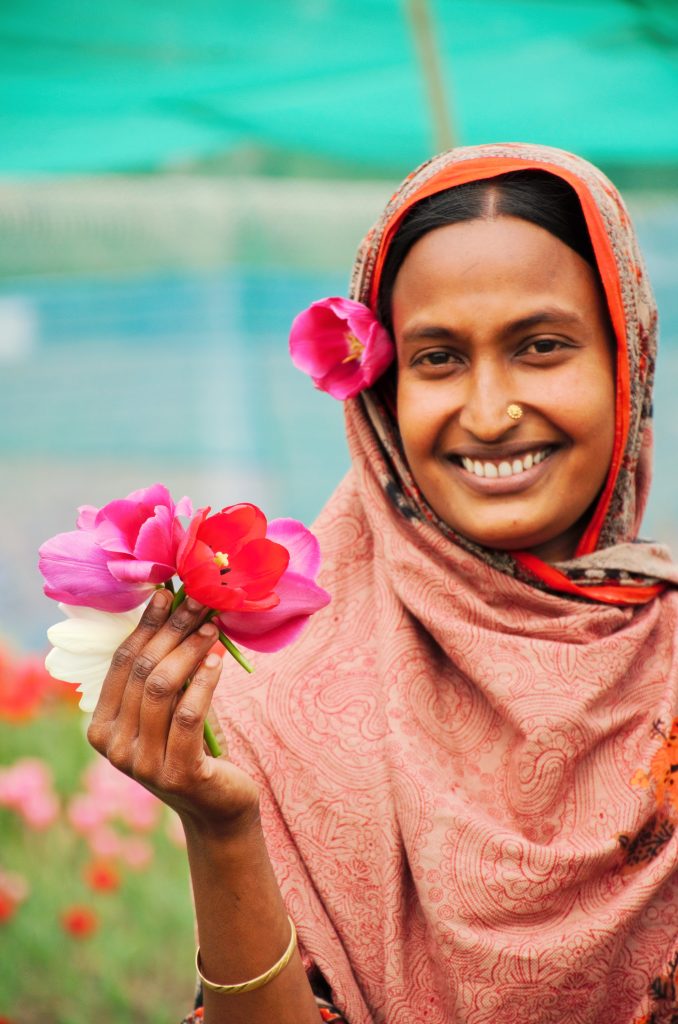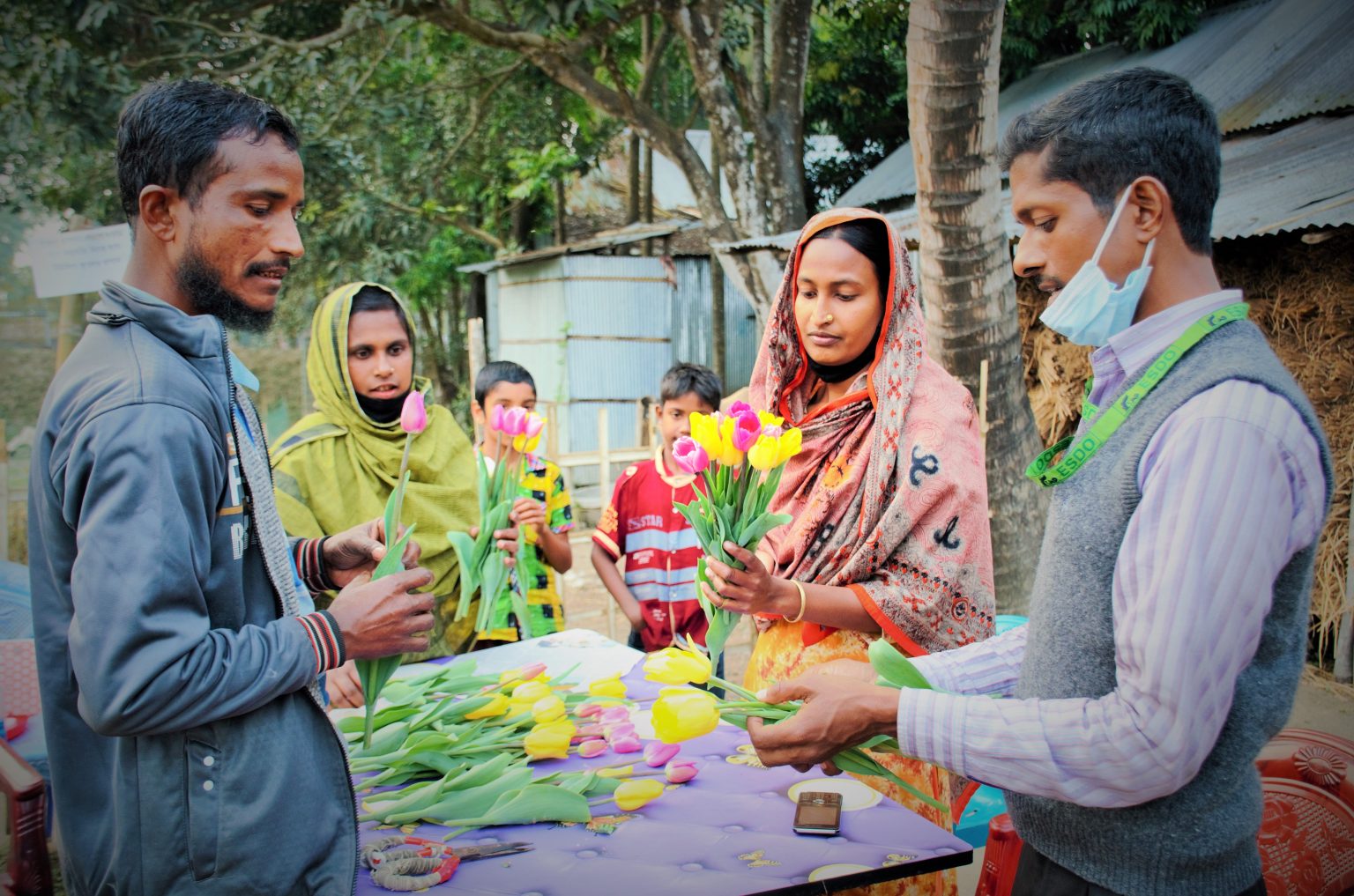Progress of RMTP Project Evaluated as Satisfactory
An IFAD Supervision Mission expressed its satisfaction over the progress of the Rural Microenterprise Transformation Project (RMTP).
They revealed it in a pre-wrap-up meeting of the 3rd Supervision Mission of the RMTP project on 10 November 2022 at PKSF Bhaban. PKSF’s Additional Managing Director Mr Md Fazlul Kader chaired the meeting. PKSF’s Senior General Manager (Program) and Project Coordinator of RMTP, Dr Akand Md Rafiqul Islam, and PMU officials of RMTP was also present in the meeting. Mission Leader Mr Dewan A H Alamgir shared the Mission’s findings and recommendations. The Mission highly praised the successes of the project. Moreover, the Mission stressed for proper documentation of the project’s success and smooth implementation of all the cross-cutting issues of the project on time.
The Supervision Mission was conducted from 30 October to 22 November 2022. The kick-off meeting of the Mission was held on 30 October 2022 chaired by Dr Akand Md Rafiqul Islam, Senior General Manager (Program) and Project Coordinator of RMTP project. The Mission visited various microenterprises and value chain activities in Sirajganj, Chapainawabganj, Bogura and Jaipurhat districts. They reviewed progress of various value chain interventions and cross cutting activities like gender, environment, nutrition, and sustainability of different value chain interventions under the RMTP project.
The wrap-up meeting of the Mission was virtually conducted on 21 November 2022 chaired by Mr Mafiz Uddin Ahmed, Additional Secretary (Project Management), Financial Institutions Division of the Ministry of Finance. Mr Md Fazlul Kader, Additional Managing Director of PKSF, was also present in the meeting. The Mission again expressed satisfaction over the progress of the project. The chair congratulated the PMU for overall achievements of the project, and suggested that the PMU document the best practices of the project.
